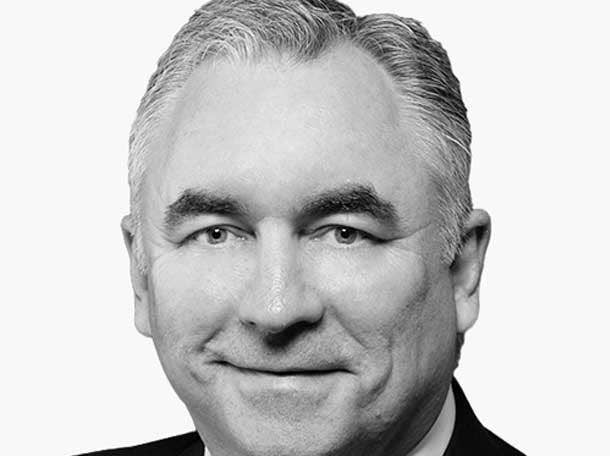Optiv Snags Longtime Deloitte Leader Kevin Lynch As New CEO
Lynch will replace Dan Burns, who co-founded Accuvant in 2002 and has led Optiv since its formation from the 2015 merger of security solution provider giants Accuvant and FishNet Security.

Optiv Security has tapped 20-year Deloitte veteran Kevin Lynch to take over Friday as CEO of the world’s largest pure-play security solution provider.
The Denver-based company, No. 27 on the 2019 CRN Solution Provider 500, praised Lynch for his 30 years of strategic, operational and technology experience as well as his proven track record of delivering growth and exceptional financial returns. Lynch will replace Dan Burns, who co-founded Accuvant in 2002 and has led Optiv since its formation from the 2015 merger of Accuvant and FishNet Security.
“Clients are facing unprecedented change and Optiv is well positioned to help organizations reduce cybersecurity complexity and enable digital transformation efforts,” Lynch said in a statement. “I am extremely honored and excited to lead Optiv and help turbocharge its already strong, innovative and client-centric approach to delivering integrated cybersecurity solutions.”
[Related: CRN Exclusive: Optiv Snags EY Security Guru Chad Holmes To Drive Comprehensive Services Strategy]
Lynch was most recently a senior partner at London-based Deloitte, No. 19 on the 2019 CRN Solution Provider 500, where he was focused on growing the firm’s mergers and acquisitions services revenue and played a key role in rearchitecting the business. He served many of firm’s largest clients as an advisory partner in Deloitte’s technology infrastructure, cloud, cybersecurity and computing segments.
He also spent time as chief global officer at Deloitte, where he was responsible for overseeing $1.2 billion of annual investment and optimizing the U.S. partnership’s global interests. Prior to Deloitte, Lynch was chief strategy officer at AECOM, where he drove growth across the company’s portfolio, and a director at PricewaterhouseCoopers focused on the intersection of strategy and technology.
“Kevin’s track record of successfully growing services businesses, coupled with his strong work ethic and management philosophy centered on people, makes him the perfect leader to take Optiv to the next level,” Optiv Chairman of the Board John Park said in a statement.
Lynch takes the reins from Burns, who took over as Accuvant’s CEO in October 2012 and spearheaded the company’s merger with FishNet just over two years later to create a $1.5 billion security behemoth. Then in early 2017, Burns helped shepard the company through its sale from Blackstone Group – who held a majority stake in Accuvant and then Optiv since March 2014 – to KKR for an estimated $2 billion.
Prior to taking over as CEO, Burns spent roughly a decade as senior vice president of Accuvant 's sales organization, where he was responsible for strategic planning, sales growth and problem resolution. Burns will continue serving Optiv going forward as an executive advisor to the CEO, partnering closely with Lynch and the board to ensure a smooth transition.
“Kevin is a veteran leader and the board and I are confident that he’s the right person to accelerate Optiv’s strategy and growth trajectory,” Burns said in a statement. “I’m incredibly proud of everything our team has accomplished and can’t wait to see what Optiv accomplishes next.”
Optiv has made five acquisitions since its formation, according to Crunchbase, scooping up identity management consultancy Advancive Technology Solutions, third-party risk assessment firm Evantix, and IT infrastructure provider Adaptive Communications in 2016. Then in 2017, Optiv purchased security and network infrastructure firm Conexsys Communications and big data and analytics firm Decision Lab.
Optiv today employs 1,915 people, up 3 percent from 1,856 employees a year ago and 9 percent from 1,751 employees two years ago, according to LinkedIn. The company has done the most aggressive hiring for its sales and operations teams, which have grown over the past year by 14 percent and 8 percent, respectively.